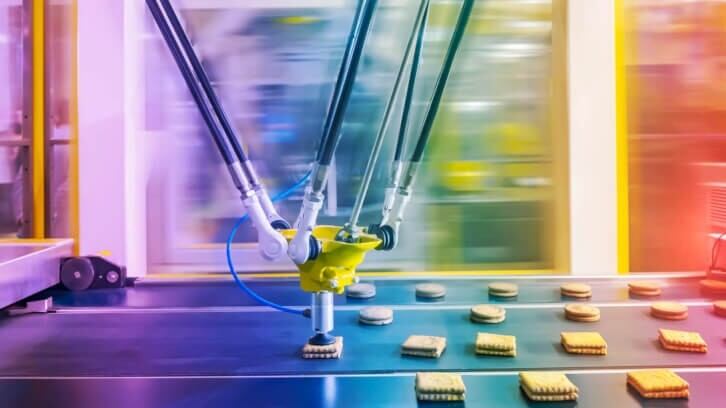More than 81% of end users said that automation was their main challenge in 2023, with three main factors driving their frustrations – the challenge of automating bespoke products, the level of skilled labour needed to support automation and the difficulty in keeping abreast of technology developments.
Despite this, the level of adoption for automation has grown by 79% within the UK manufacturing sector – 15.79% said it was growing significantly, while 63.16% said it was growing somewhat.
The cost of investment remained the greatest barrier for entry for most businesses (72.63%), followed by unrealistic expectations (32.63%) and the knowledge available (30.53%). Small and medium-sized enterprises (SMEs) in particular perceived the costs of automation to be out of reach.
Starting small in automation
However, Automate UK suggested these fears over cost were driven by manufacturers thinking too big with their automation projects. Instead of turning to automation to resolve the biggest production issues, more focus should be made on automating simple tasks to gain operational efficiencies.
Taking a small and measured approach can ease employees into the idea of further automation, building trust and experience. Stakeholders will then come to see the return on investment over time.
For those businesses willing to take the plunge, technology integration was the biggest challenge to adoption for 73.08% of respondents. This was followed by and associated with the lack of workforce skills (50%).
One of the businesses surveyed said: “It is not so much the automation itself, it is having the skilled people to maintain the automated systems that have been installed.”
Compliance challenges
Interestingly, regulatory compliance was a challenge for 34.62% of respondents, while supply chains were mentioned by 30.77%.
Responding to these challenges, Automate UK made a series of recommendations to help businesses better adapt to automation adoption. This included the need for the development of a skilled workforce through the combined focus on STEM (science, technology, engineering and mathematics) education and training, busting the myth that ‘robots take jobs’.
“The fact that robots don’t take jobs but do fill vacancies was emphasised during the first event run by the UK Automation forum,” read the report. “This has been supported by Make UK, with the estimation that there are 79,000 vacancies across the manufacturing sector at present.
Meanwhile, food businesses must face their fears over warehouse automation and rediscover their ‘appetite for risk’ if they wish to keep up in one of the fastest moving sectors in the world, according to supply chain systems provider Invar Group.




